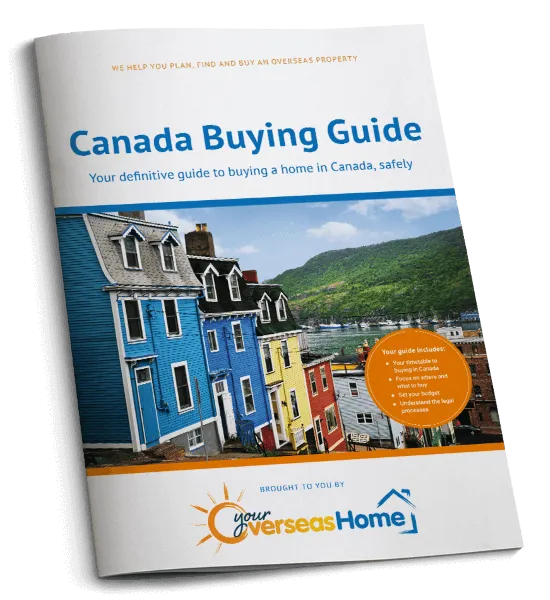Canada has extended their partial ban on foreign buyers purchasing property until January 2027. Plus, Canada have put a cap on the number of temporary residents. Find out how this could impact your plans.
On January 1st 2023, Canada introduced a partial ban on foreign buyers buying property there for two years. In February 2024, the Canadian government announced that the ban was to be extended for another two years, ending in January 2027. You can read the announcement here.
The government’s reasoning behind the ban was that overseas buyers were driving up the price of property and making it difficult for Canadians to get on the housing ladder. The ban is combined with a boost in federal commitment to building more homes, with federal investment in housing $9 billion higher than it was ten years ago.
However, the ban has been criticised for being ineffectual as there were not many international buyers to begin with, so banning them has had little impact on the affordability of a home. Currently, home prices average $700,000 and rent has risen by 22% over the last two years.
If you were to go ahead and purchase a property, you’d have to pay a €10,000 fine and have a compulsory order to sell.
Don’t spend any money on your move abroad until you’ve read The Currency Guide to Emigration, free to download.
How can I purchase a property in Canada?
If you are planning to move to Canada and settle down there, then the housing market is open to you, so long as you are a permanent resident or a citizen. Plus, if you have more than 183 days left on a work permit, you will be able to purchase a property. Under certain circumstances, international students are also able to buy a home.
Non-Canadians can purchase vacant land for development purposes.
The ban does not apply to those that are married to or a common-law spouse of a Canadian.
In places with a core population of under 10,000 people, the ban does not apply. You can use this tool to find out if the area you are interested in is subject to the rule.
You can find out more information here.
Cap on temporary residents
As an additional measure to make housing more affordable, Canada is putting a temporary cap on the number of temporary residents allowed into the country. The first cap will be set in September.
Over the next three years, Immigration Minister intends for the number of temporary residents to be reduced from 6.2% to 5% of the overall population.
Currently, there are 2.5 million temporary residents in Canada. According to the national data collection agency Statistics Canada, this is up from nearly one million in 2021.
Many of these new temporary residents come from Ukraine. While Canada does have global commitments to accommodate those fleeing war, the cap will still apply to asylum claimants. As well as international students and foreign workers.
International students make up 22% of temporary residents. Earlier this year, the Canadian government announced that there would be a cap on study permits of 360,000. This will be a decrease of 35%. The cap does not impact renewals or current permit holders. Moreover, it does not apply to those studying for a masters or doctorate. You can find out more information here. This move has been criticised by some post-secondary institutions, which are reliant on the revenue generated by international students.
Furthermore, as part of the new policy, some Canadian businesses will have to reduce the number of temporary workers they rely on by May. They will have a shorter window to prove that they cannot fulfil a position with a Canadian resident or permanent resident. However, the healthcare and construction sectors will have until the end of August, as these industries have more significant labour shortages.
Are you a French speaker?
If you are a French language speaker, then you may be able to benefit from Canada’s efforts to entice more French-speaking skilled newcomers to areas outside of Quebec. Find out more about the initiative here.
You might also like reading:









